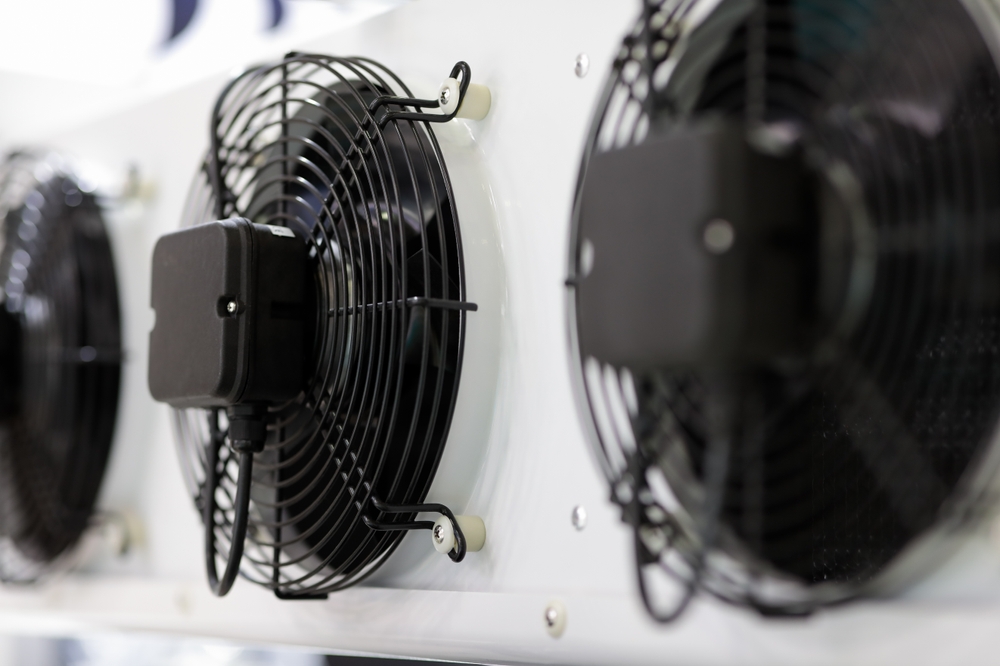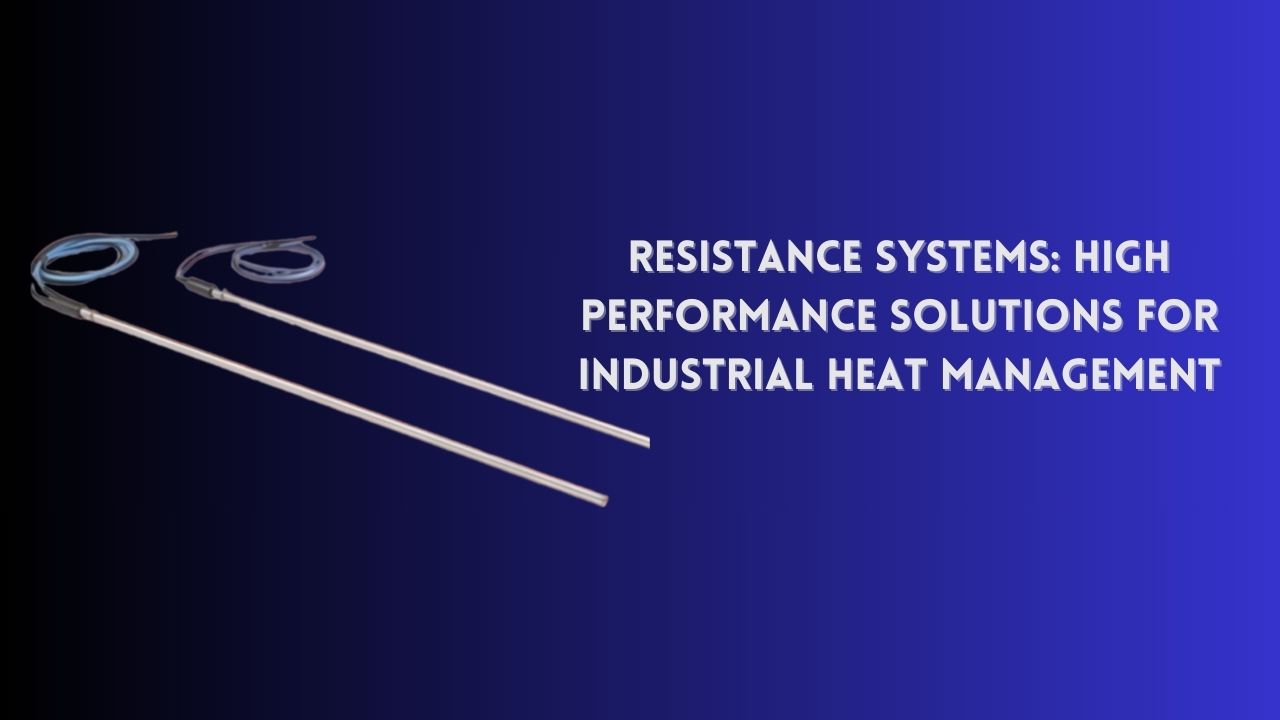
Resistance Life Enchance: Operation Maintenance and Savings Tips


Resistance systems are of critical importance in industrial heat management. These systems, which are used effectively in a wide range of areas from heat production to control, provide high efficiency. In industrial processes, maintaining certain temperature levels directly affects production quality. Proper design and use of resistance systems allows energy consumption to be optimized. Proper functioning of thermal management provides increased performance and lowers operating costs for all types of industrial applications.
These systems work on the principle of directly converting electrical energy into heat. In the industrial field, high temperatures are needed in many sectors such as metal processing, food production or automotive. Resistance systems support these processes to occur efficiently by providing the correct amount of heat. The quality of the materials used in heat conduction greatly affects the overall efficiency of the systems. Therefore, correct material selection and technological developments ensure higher performance of the systems.
High-performance resistance systems play an important role in increasing efficiency in industrial heat management. These systems provide the same level of heat production while consuming less energy. Such resistors allow heating elements to work more efficiently. Performance varies depending on the materials, design and manufacturing techniques used. Resistance systems, especially those with high temperature resistance, do not lose their effectiveness even in long-term use.
Advanced resistance designs respond faster to heating processes and reach targeted temperature levels in a short time. This provides a significant advantage, especially in production processes, because the shortening of the heating process increases the overall production speed. Additionally, these systems increase safety by minimizing problems such as overheating. High-performance systems not only provide efficient heat management, but also reduce environmental impact by saving energy.

The usage areas of resistance systems are quite wide, considering the diversity of industrial processes. These systems are frequently used in sectors such as metal processing, automotive production and plastic processing. For example, in metal heat treatment processes, high temperatures are required for materials to reach the desired hardness level. Resistance systems ensure that these processes occur in an uninterrupted and controlled manner. These systems, which are used in cooking and drying processes in the food industry, provide more homogeneous cooking by keeping the temperatures in the facility at a certain level. Resistance systems reduce operational costs by providing energy efficiency in such industries. Thanks to systems that can meet all types of industrial cooling and heating needs, it is possible to carry out processes quickly and safely. This provides high performance and low energy consumption in production lines. This diversity across different industries demonstrates the flexibility and versatility of resistance systems.
Developing technologies constantly offer innovative solutions to increase the efficiency of resistance systems. New generation electronic circuits and digital control systems allow more precise control of heating processes. These systems automate temperature control, eliminating human errors and increasing energy efficiency. Technological developments also reduce maintenance costs by making resistance elements more durable and long-lasting.
Sensors used in heat management collect real-time data and constantly monitor heat levels. This data helps analyze the performance of the system. Resistors produced with advanced materials work more efficiently even at higher temperatures. This reduces energy losses and helps reduce operating costs. Innovative technologies contribute to making industries more sustainable by providing more efficient solutions in industrial cooling and heating systems.
Energy efficiency is a critical factor in industrial resistance systems. An efficient resistance system can reach the same temperature level by consuming less energy. This allows for a reduction in environmental impacts while reducing energy costs. Minimizing losses in the process of converting electrical energy into heat increases the overall efficiency of the system. Designs made using environmentally friendly materials and technologies ensure sustainable energy use.
To ensure energy efficiency, it is important that the resistance elements heat up efficiently and retain heat for a long time. This allows energy losses to be reduced and systems to operate with lower energy consumption. Advanced systems minimize environmentally damaging emissions. Reducing environmental impacts enables companies to achieve their sustainability goals. These improvements in resistance systems offer solutions that benefit both businesses and the environment.
Fast temperature control in resistance systems plays a critical role, especially in industrial production processes. Fast-response systems shorten production times by quickly reaching targeted temperature levels. Such systems are equipped with mechanisms that increase occupational safety. Heat levels can be constantly monitored, thus preventing problems such as overheating. Systems that can operate safely help protect the workforce.
Technologies that optimize thermal control give users greater control over the system. This creates a more efficient and safe environment in production processes. Systems that provide rapid temperature control also minimize energy losses. In this way, businesses can achieve higher efficiency at lower costs. Thermal security is indispensable for the operation of industrial facilities, and systems that provide rapid temperature control are an important element that increases this security.
Long-lasting resistance systems require less maintenance in industrial areas, providing significant savings to businesses. These systems, made of durable materials, offer longer-term use. This significantly reduces the maintenance and repair costs of businesses. Long-lasting systems malfunction less frequently and do not cause disruptions in production lines.
Durable resistance systems are more resistant to overheating and other adverse conditions. Thanks to these features, it increases the operational efficiency of businesses. Long-life systems allow industrial facilities to operate more sustainably and cost-effectively. Thus, businesses achieve high efficiency with lower operating costs in the long run. Such systems accelerate the return on investment and provide a more economical production process.
Innovations in resistance technologies constantly aim to provide more efficient and environmentally friendly solutions. With developing technology, faster heating, higher efficiency and lower energy consumption are provided. In the future, the materials used in resistance systems will be more durable and environmentally friendly. Digital control systems will make heat management more precise and safe.
New generation resistance systems will have the capacity to produce more heat by consuming less energy. These technologies provide more sustainable and cost-effective solutions in industrial applications. Innovative designs and use of materials allow systems to operate longer and more efficiently. The future holds great potential for cleaner and more efficient solutions in industrial heat management.

Fill out the form to discover the most suitable high-end products for your projects. Contact Us Now.